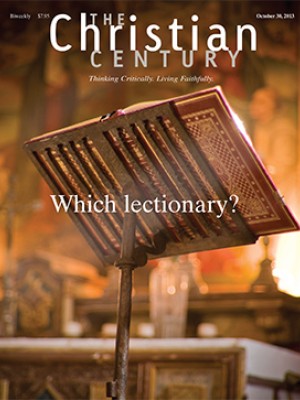Plain speech

A few weeks ago we turned over our old car to our son; it required changing our insurance policy, transferring the title and canceling our plates so that he could register and insure the car in his own name. A friendly insurance agent helped us through the process—but it took 48 e-mail messages back and forth to establish the correct version of all the forms. With each revision, new errors crept in—the old garaging location substituted for the new, the model name Spoonerized, the zip code altered to the number of the Beast. Each data entry field was a pit and snare. In retrospect, I realized that it would have been much easier to visit the insurance office in person; a face-to-face meeting would have spared us endless misunderstandings.
Between e-mail messages, I followed the press coverage of the lengthy interview Pope Francis gave in August to Antonio Spadaro SJ, editor-in-chief of the Italian Jesuit journal La Civiltà Cattolica, on behalf of several Jesuit journals, among them America magazine. After commissioning five experts to translate the Italian transcript, America published the interview in full for English-language readers; the result was a media sensation. The interview touched on the pope’s self-understanding (“I am a sinner whom the Lord has looked upon”), his experience of World Youth Day, his understanding of the essential mysticism of the Jesuit order’s founders, his painful realization of the difference between authority and authoritarianism, his hopes for ecumenism, his prayer life, his favorite artists and theologians, his sense of the holiness of ordinary Christians, and his conviction that what heals wounds, “fascinates and attracts” and “makes the heart burn” should be the touchstone of Christian proclamation.
Read our latest issue or browse back issues.
A small part of the interview concerned sexual morality. Francis observed that sexual morality is not the centerpiece of Catholic moral teaching and should not be talked about incessantly—and the mainstream press, talking incessantly about this subject as it is wont to do, called it a papal bombshell. Francis reiterated the remarks he made in Rio about not judging gays and lesbians, and headlines announced that he had “sent shock waves” through the Roman Catholic Church. Comedian Chris Rock received close to 10,000 “likes” in 24 hours for posting on Facebook, “I might be crazy, but I got this weird feeling that the new pope might be the greatest man alive.” Such is the effect of hearing the gospel livingly communicated: shock and delight in equal measure, and, since we are human, no small amount of misunderstanding comes in its wake.
No doubt Francis was aware that his intimate and uncensored way of speaking would provoke misunderstanding. No doubt he was aware that many people would imagine that in obeying Christ’s imperative not to judge, he was jettisoning Catholic doctrine on the sanctity of life, chastity, contraception. Evidently he thought it worth the risk. And I believe he was right. I don’t know about Chris Rock, but I suspect that many people will give Catholic social and moral teachings a second look because of the intimate, frank, humble and nonjudgmental words and actions of this teaching pope.
There would be plenty of opportunities to present the full panoply of doctrine—on the day after his interview, Francis gave a resounding affirmation of the church’s prolife stance to an audience of obstetricians and gynecologists—but in his interview he spoke as a doctor of souls: “It is useless to ask a seriously injured person if he has high cholesterol and about the level of his blood sugars! You have to heal his wounds. Then we can talk about everything else.”
There is a general lesson in all this. We tend to think, with all the media at our disposal, that we are well equipped for the art of communication; we imagine that we are more sensitive than our ancestors to the ethnic, religious, national or ideological “other.” But it is still the case that we often hear what our wishes or fears predispose us to hear. Sometimes it feels as though a thick mist has descended upon us, distorting communications. But then a face shines through the mist and dispels it; we drop our fears and wishes—and hear the message.
True understanding requires an act of good will on our part, too—an exercise of intellectual empathy, an effort, as Francis put it in the interview, to see the whole narrative arc of an institution’s history or a person’s life. John Henry Newman wrote his Apologia pro vita sua in order to put to rest the calumny that he, and his adopted church generally, preferred cunning to truthfulness. C. S. Lewis wrote his memoir, Surprised by Joy, “partly to correct one or two false notions that seem to have got about.” The irony is that both works are full of episodes in which relationships founder on miscommunication. But to read Newman and Lewis is to see the narrative arc of their lives and of the Christian tradition to which they adhered; and from this seeing comes understanding. Pope Francis is doing something similar. Though he can expect to be misunderstood at first, he is wagering on the much more interesting possibility that a personal connection to his audience will enable him to get his full message across. It’s an exciting time for those who cover religion in the press—and a hopeful time for ecumenical and interreligious understanding. A face-to-face meeting, undertaken with good will, dispels the mist.





